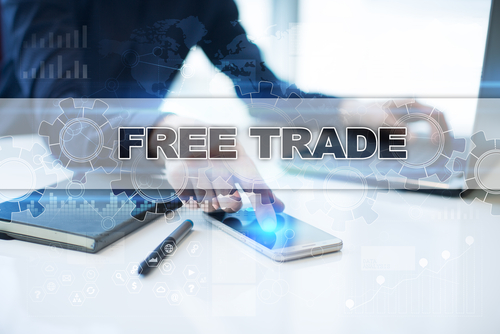President Donald Trump is urging the Fed to cut interest rates to offset the inflation that will be caused by tariffs. “The Fed would be MUCH better off CUTTING RATES as U.S.Tariffs start to transition (ease!) their way into the economy,” Trump wrote. “Do the right thing. April 2nd is Liberation Day in America!!!” Reducing interest rates will NOT offset inflation caused by tariffs because the two variables are not directly related.
Tariffs increase costs due to supply, while interest rates influence demand. When tariffs are imposed, the cost of imported goods rise, increasing prices for consumers and businesses. This cannot be offset by lowering interest rates, as rate cuts stimulate borrowing and investment rather than addressing price increases caused by trade barriers. In fact, lower interest rates can exacerbate the problem by weakening the currency, making imports even more expensive, further fueling inflation.
Historically, tariffs have led to stagflation—rising prices combined with economic stagnation—rather than the demand-driven inflation central banks typically target. The Smoot-Hawley Tariff of the 1930s, for example, severely disrupted global trade and worsened the Great Depression. Similarly, Trump’s trade war with China during his first term did not lead to any economic boom but instead forced businesses to adjust supply chains, raising costs for consumers.
Lowering interest rates in this environment offsets capital flows, decreasing confidence and weakening the purchasing power of the currency. The result is a cycle in which consumers face higher costs while the central bank loses the little control it has to manage inflation. The idea that the Fed could actually control inflation is based on outdated Keynesian economics concepts that were drafted when the US had a balanced budget. Now, most demand comes from the government itself, the largest borrower and creator of debt. This is why Jerome Powell spoke out against Joe Biden for creating the largest spending package in US history and multiplying the public sector. The government will never pay off its debts, and the interest payments on that debt alone have been astronomical.
Relying on rate cuts to counter tariff inflation ignores the root cause of the issue. The real solution lies in reducing trade barriers and not relying on tariffs to increase the demand for domestically made goods.
